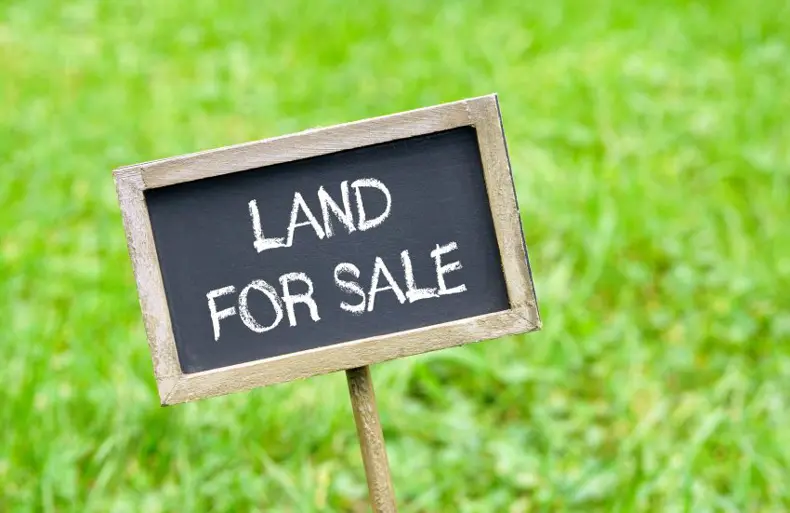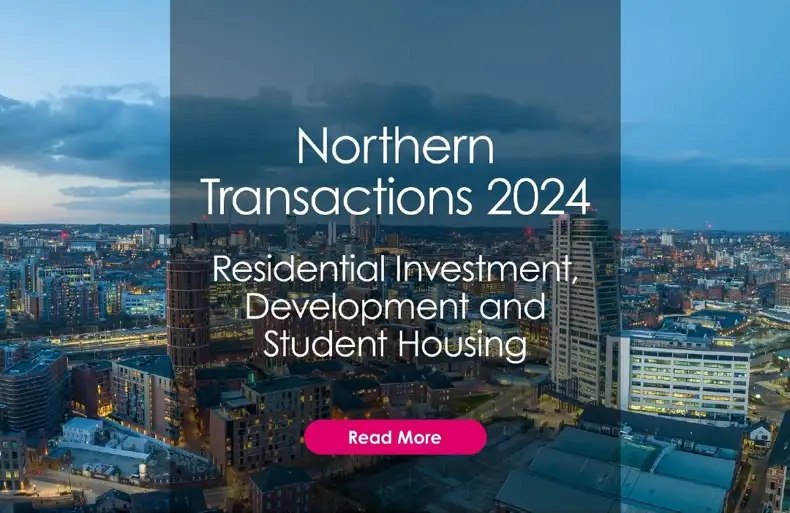Blog | Development and Land
Are you looking to sell your land? Here’s how

Many landowners are increasingly tempted to sell their land for development, usually under an option agreement.
An option agreement is a one-sided contract where the landowner is obliged to sell their land to a house builder at a trigger point, usually on the grant of planning, but the house builder has no obligation to purchase it. The house builder takes on the upfront costs and risks of trying to secure planning permission, with an agreement in place, that when they do the landowner can only deal with them.
Here are our top tips for landowners using an option agreement to help maximise their land value:
1. Instruct professional consultants
Having an experienced agent, solicitor and accountant on your side prior to negotiating an option agreement is vital to protect your interests, ensure you maximise your land value and structure the most tax efficient deal.
2. Clean title
A clean title is often not considered by landowners until much later in the option process, but not having this has the potential to significantly delay or even lead to a failed land sale. Issues such as unregistered land, restrictive covenants, boundary issues and rights of way are common issues which arise in title searches and generally have a negative impact on the land value. Sorting these potential issues before entering into an option agreement will save you significant time and costs, as well as making your land more desirable to house builders.
3. Put proper and flexible tenancy agreements in place
It is common for landowners, particularly farmers, to let land on an informal arrangement. This can cause a problem with getting vacant possession and so any informal agreements should be formalised. Consideration should be given to notice periods and security of tenure provisions to avoid having to pay large compensation costs to tenants, or face long delays to the sale of your land.
4. Get finance lenders consent to sell
Aligned with making sure you have clean title, if you have a legal charge on the land you will require the lenders consent to sell, that includes if you are selling part of a larger parcel, you will need to obtain a release. Sale of part can often require renegotiation of your finance agreement, which can be timely and so worth engaging with your lender at the start of the process.
5. Dig out any of your own surveys and reports
Often one of the main discrepancies between landowners and house builders comes when the house builder presents their land valuation and there is a significant reduction in the value, due ‘abnormal costs’.
Abnormal costs are additional or unusual costs that a house builder might face when developing a site. Ground contamination, flooding / drainage, foundation types, are all accepted within the industry as being legitimate deductible costs. If you have any reports such as drainage or contamination it is advisable to cross check these against the house builders estimated costs. We would also strongly advise using a land costing specialist to review the technical reports produced by the house builder.
6. Negotiate an overage agreement
An overage agreement in this case, is a right to receive future payments in respect of land which has been sold, sometimes referred to as a clawback. The overage is activated by a planning gain or higher than expected house sale prices being achieved and is there to protect the landowners position.
7. Prepare a collaboration agreement at the very start to avoid conflict
It is common for there to be a number of different landowners involved in an option agreement, and a collaboration agreement is a mechanism by which a group of landowners can eliminate potential conflicts between each other when it comes to developing a master plan multiple ownerships. There is also a tax benefit for putting one in place.
There are various means of equalising proceeds, but where the agreement really comes in to play to avoid disagreements, when for example one landowner’s land may not actually be proposed for development, instead used for development necessities, such as public open space or drainage ponds, clearly playing a part in the whole site getting planning permission. In this circumstance it may be agreed to split the achieved land value depending on the percentage of land ownership.
8. Consider other routes to sale
Option agreements are one of a couple of ways in which a landowner can sell their land, but there are others which should also be considered.
Promotion agreements are becoming increasingly more popular with landowners, as unlike option agreements, the landowner and promoter’s key interests are aligned. A promoter will, at their expense, promote the land through the planning system in order to secure planning permission and then locate a buyer. The promoter usually takes a fee for this service and it is in their interest to maximise the value of the site.
Alternatively, a landowner may choose to enter into a conditional sale contract through a private treaty sale. This will often contain conditions related to the house builder having pre-agreed a price subject planning permission . If the conditions are not met then the contract will potentially terminate and the landowner is free to explore other avenues for sale.
All options have their pros and cons and it is quite likely a combination of a few will be undertaken to achieve the sale.
Related Insights

Northern Residential Property Transactions 2024 & Market Update
Take a look at the properties we sold in 2024 and read our market updates.

Allsop appoints senior land & development specialist bolstering residential and living team
Allsop has appointed Hugh Bushell as Senior Associate to its Residential Transactional and Living Markets (RTLM) team.

The Developing Relationship between Traditional Housebuilders and Single-Family Housing Investors
Looking forward there is a palpable sense of optimism within the industry. Despite the challenges that have arisen, particula...

The Return of Office to Residential Conversions - What does this Cycle Look Like?
It took longer than expected (the consultation concluded in September ’23), but Permitted Development (PD) on a large scale i...